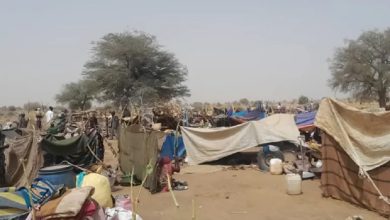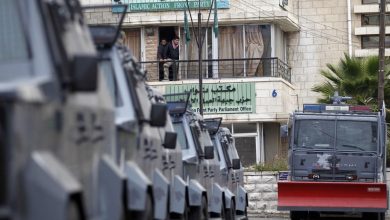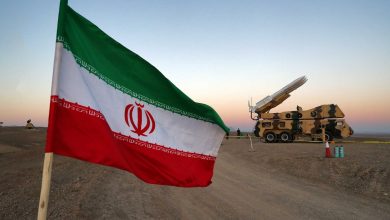Maher al-Assad’s Fourth Division: The Military Empire That Looted Syria’s Economy
How the Fourth Division Plundered Syria’s Wealth, Built a Drug Empire, and Operated as a "State Within a State".
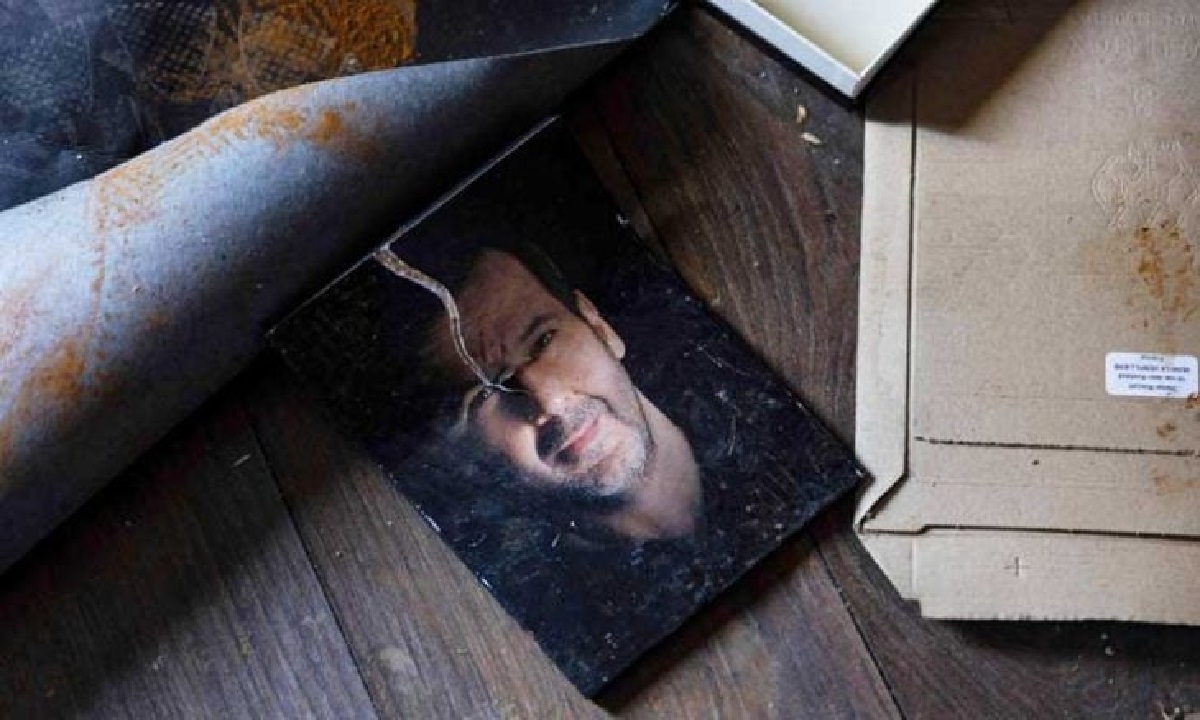
Watan-From its bases in rugged hills overlooking Damascus, the Fourth Division—the empire of Maher al-Assad, the brother of the ousted president Bashar al-Assad—drained Syria’s economy, looting and depleting its resources to the last drop.
After the fall of the Assad regime, many of the notorious military unit’s headquarters—long feared across Syria—were ransacked. Yet scattered documents within them reveal details of the luxury and wealth enjoyed by “Sidi al-Muallim” (Master Teacher), as Maher was called, alongside his favored aides, while some of his soldiers struggled to feed their families, even resorting to begging.
A collection of documents reviewed by AFP at several of these now-abandoned sites exposes a vast economic empire built by Maher al-Assad and his network of beneficiaries. This empire extended into every domain, from manufacturing and trafficking captagon to imposing levies at border crossings and checkpoints.
Western governments had long accused Maher and his associates of turning Syria into a “narco-state” that flooded the Middle East with captagon pills, an illegal stimulant primarily smuggled into the Gulf.
But beyond the drug trade, estimated to be worth over $10 billion, the documents examined by AFP reveal how the Fourth Division infiltrated numerous sectors of the country, operating more like a privileged “mafia” within a rogue state.

A State Within a State
The Fourth Division seized homes and farms, confiscated goods ranging from food supplies to cars and electronics, and plundered copper and metals from war-ravaged areas.
It imposed levies at checkpoints and collected money from escorting and securing oil tankers, even those coming from areas controlled by armed groups. The division also monopolized trade in tobacco and metals.
At the heart of this corrupt network lay Maher al-Assad’s private headquarters, perched above a maze of tunnels carved into the mountain overlooking Damascus—some large enough for trucks to pass through.
A masked guard, now aligned with Syria’s new ruling authority, led AFP journalists through the tunnels as if on a guided tour, pointing out bathrooms, bedrooms, and what appeared to be emergency escape routes.
Descending a steep staircase with 160 steps, they found rooms locked by armored doors.
The guard claimed to have counted nine safes inside one of these rooms.
He explained how the safes were “broken into” and looted by people who stormed the site on December 8, just hours after opposition factions led by Hay’at Tahrir al-Sham toppled the Assad family’s rule, ending more than five decades of iron-fisted control over Syria.
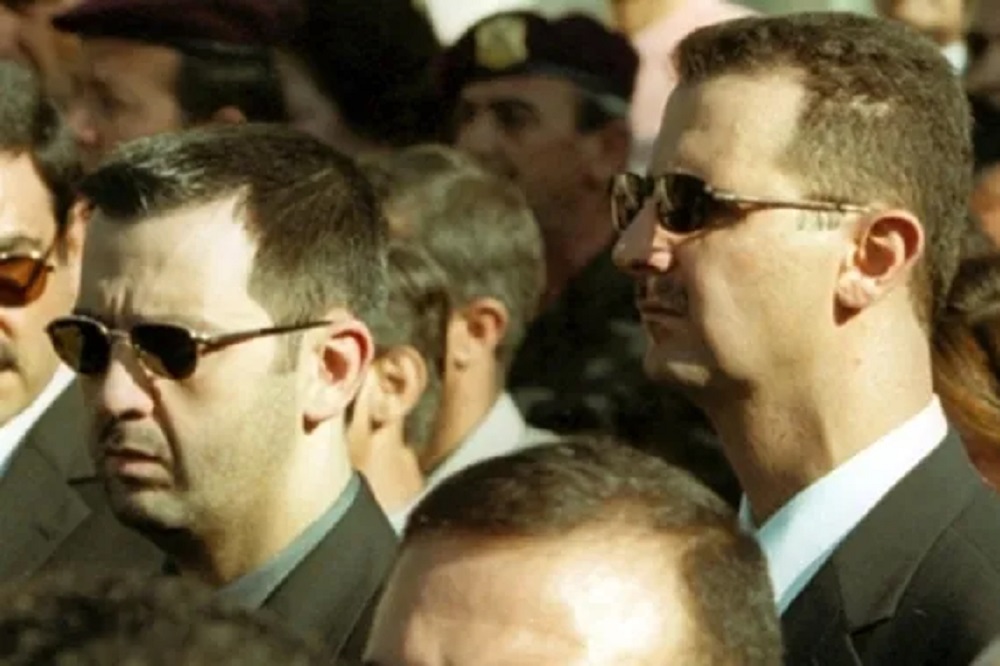
According to a senior Iraqi source and two other Syrian sources, Maher al-Assad (58) was unaware of his brother’s plan to flee to Russia. He escaped separately by helicopter to Iraq before making his way—likely through Iran—to Russia.
Inside the underground compound, the chaos was evident: open safes, empty Rolex and Cartier watch boxes strewn about. It remains unclear whether the safes had been emptied before the looting.
Pointing to an office, the guard said it was Maher al-Assad’s “main office,” consisting of “two floors above ground with tunnels below… including locked rooms that cannot be opened.”
Next to an abandoned safe in a hallway, a thermal wrapping machine—presumably used for bundling banknotes—was left behind.
Hidden Fortunes
Among the many scattered documents examined by AFP inside an abandoned Fourth Division security office was a financial ledger detailing expenses.
As of June 4, the records showed a cash reserve of $80 million, €8 million, and 41 billion Syrian pounds.
Hundreds of documents reveal that Maher al-Assad and his security office held similar sums between 2021 and 2024.
Khaddour Khaddour, a researcher at the Carnegie Middle East Center, said, “This is just a small sample of the wealth Maher and his associates amassed through their illicit dealings.”
He estimated that their real fortunes were likely hidden “abroad, probably in Arab and African countries.”
He added, “The Fourth Division was a money-printing machine,” in a country where, according to the UN, more than 90% of the population survives on just two dollars a day.

Extravagance and Exploitation
Western sanctions failed to curb Maher al-Assad and his men or diminish their influence over the years of war.
Omar Shaban, a former brigadier in the Fourth Division who struck a deal with Syria’s new administration, stated, “The Fourth Division was an independent state… it controlled everything.”
While dealing in US dollars was banned in Syria, many security officers “became wealthy, with safes full of money… exclusively in dollars,” he said.
Maher’s closest associates lived in lavish mansions and routinely imported luxury cars, while outside their palatial walls, the country plunged into poverty, misery, and fear.
Even weeks after the fall of Assad’s rule, Syrians still searched Maher al-Assad’s villa in the upscale Yaafour area, rummaging through rooms near stables where his award-winning daughter used to ride horses.
Inside the looted palace, a man moved from room to room, asking the AFP team anxiously, “Where is the gold?”
But all he found were old photographs scattered on the ground, including one of Maher with his wife and three children.
“The Invisible Man”
Maher al-Assad was a secretive and fearsome figure in Syria, known as the man who executed the regime’s “dirty work.”
Although his image adorned every Fourth Division facility, he rarely appeared in public.
Despite being accused by human rights organizations of ordering the killing of unarmed protesters since 2011 and being linked to assassinations, he remained “the invisible man,” a source close to the Assad family told AFP.
“You will find very few people who claim to know him personally,” the source added.
In a February interview with Saudi Arabia’s Al Arabiya channel, Majd al-Jadaan—sister of Maher al-Assad’s wife, who left Syria in 2008 after disputes with him—described him as generous and sometimes pleasant company. However, she added, “When he got angry, he completely lost control of his actions and words, and that was terrifying about him.”
A Mafia Within the Regime
When Damascenes complain about the Fourth Division’s abuses, another name often comes up alongside Maher’s: Ghassan Bilal, his security chief.
Like his boss, Bilal was a collector of luxury cars and owned a villa in Yaafour. Security sources say he fled Syria after the regime fell.
Inside his spacious office at the Fourth Division’s security headquarters, invoices reveal his extravagant lifestyle, including bills for the maintenance of his Cadillac.
In the summer of 2024, he shipped two luxury cars—a Lexus and a Mercedes—to Dubai, according to a document seen by AFP. Other invoices show a $29,000 payment for customs and insurance in the UAE, using a credit card registered to another person.
A handwritten note indicated that, due to Western sanctions, Bilal paid for his Netflix subscription “through a friend’s foreign credit card.”
Other receipts detail personal and household expenses, including payments for his children’s needs, kitchen supplies, and property maintenance. In just ten days in August, his spending amounted to $55,000.
That same month, a Fourth Division soldier wrote to Bilal, pleading for “financial assistance due to extreme hardship.”
Bilal granted him 500,000 Syrian pounds—equivalent to just $33 at the time. Meanwhile, another document recorded an incident where a Fourth Division soldier was caught begging in the streets while on duty.
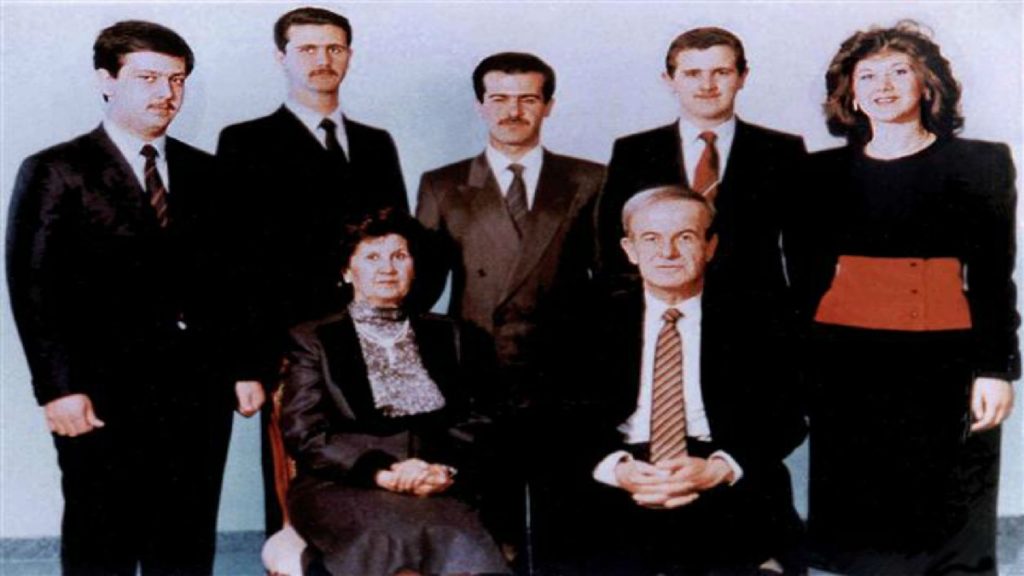
A Toxic Legacy
Though the Fourth Division is now reduced to abandoned warehouses and looted headquarters, Lars Hauch of Conflict Mediation Solutions warns that its legacy remains dangerous.
“The Fourth Division was a military player, a security apparatus, an intelligence entity, an economic and political force, and a transnational criminal organization,” he said.
“A long-standing institution with vast financial resources and deep ties to the elite does not simply disappear.”
While its top leadership fled the country, its “core elements” retreated to Syria’s coastal regions, home to the Alawite sect from which the Assad family hails.
If Syria’s transition fails to be truly inclusive and achieve justice, Hauch warned, “everything needed for a prolonged insurgency remains in place.”

